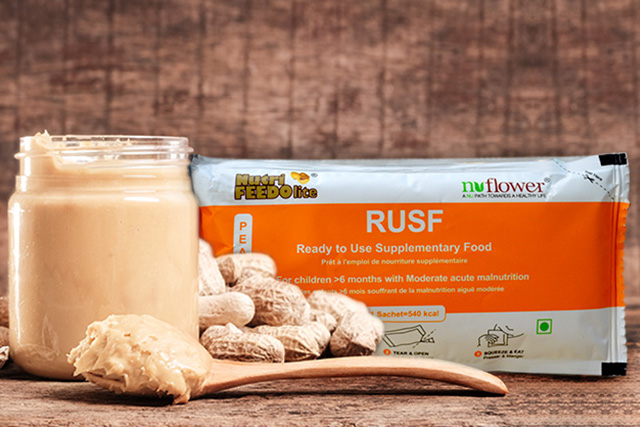Malnutrition is a major public health problem in many developing countries, where access to food is limited and poverty is widespread. However, malnutrition is not limited to developing countries and can also be found in developed countries, particularly among low-income and vulnerable populations.
RUSF, also known as Ready-to-Use Supplementary Food, is a type of food aid provided to malnourished children under the age of 5 in developing countries. RUSF is a cost-effective solution for treating malnutrition. It is less expensive than traditional forms of therapeutic food that require preparation, cooking, and clean water. It can also help to support local economies by providing a market for locally-produced food products.
Ready-to-Use Supplementary Food (RUSF) is used because it is a convenient and effective way to provide nutrition to malnourished children and pregnant and lactating women in developing countries. RUSF is a type of therapeutic food that is specially formulated to provide the necessary nutrients to support growth and development and to help prevent and treat malnutrition. It is easy to store, transport, and distribute, and does not require preparation, cooking, or clean water which is often scarce in certain areas. RUSF is often used in emergency situations where access to food is limited, such as in refugee camps or during natural disasters. It is also used in areas where malnutrition is prevalent.
The large-scale benefits of RUSF include improving the nutritional status of vulnerable populations, reducing child mortality, and improving the overall health and well-being of recipients. Additionally, RUSF can help to support local economies by providing a market for locally-produced food products.
The Unspoken Benefits of RUSF
Improving Nutritional Status: RUSF is specially formulated to provide the necessary nutrients to support growth and development and to help prevent and treat malnutrition.
Reducing Child Mortality: Malnutrition is a leading cause of child mortality in developing countries. By providing RUSF to malnourished children, the risk of death is greatly reduced.
Improving Overall Health and Well-being: Malnutrition can lead to a variety of health problems such as stunted growth, weakened immunity, and increased susceptibility to disease. By providing RUSF, the overall health and well-being of recipients is improved.
Supporting Local Economies: RUSF is often made with locally-produced food products, which helps to support local economies.
Convenience: RUSF is easy to store, transport, and distribute, and does not require preparation, cooking, or clean water which is often scarce in certain areas. It is a great solution for emergency situations where access to food is limited, such as in refugee camps or during natural disasters.
Cost Effective: RUSF is a cost-effective solution for treating malnutrition. It is less expensive than traditional forms of therapeutic food that require preparation, cooking and clean water.
Ready-to-Use Supplementary Food (RUSF) has been found to be effective in treating malnutrition in certain populations. Studies have shown that RUSF can improve the nutritional status of malnourished children and pregnant and lactating women, reduce the risk of death, and improve overall health and well-being.

